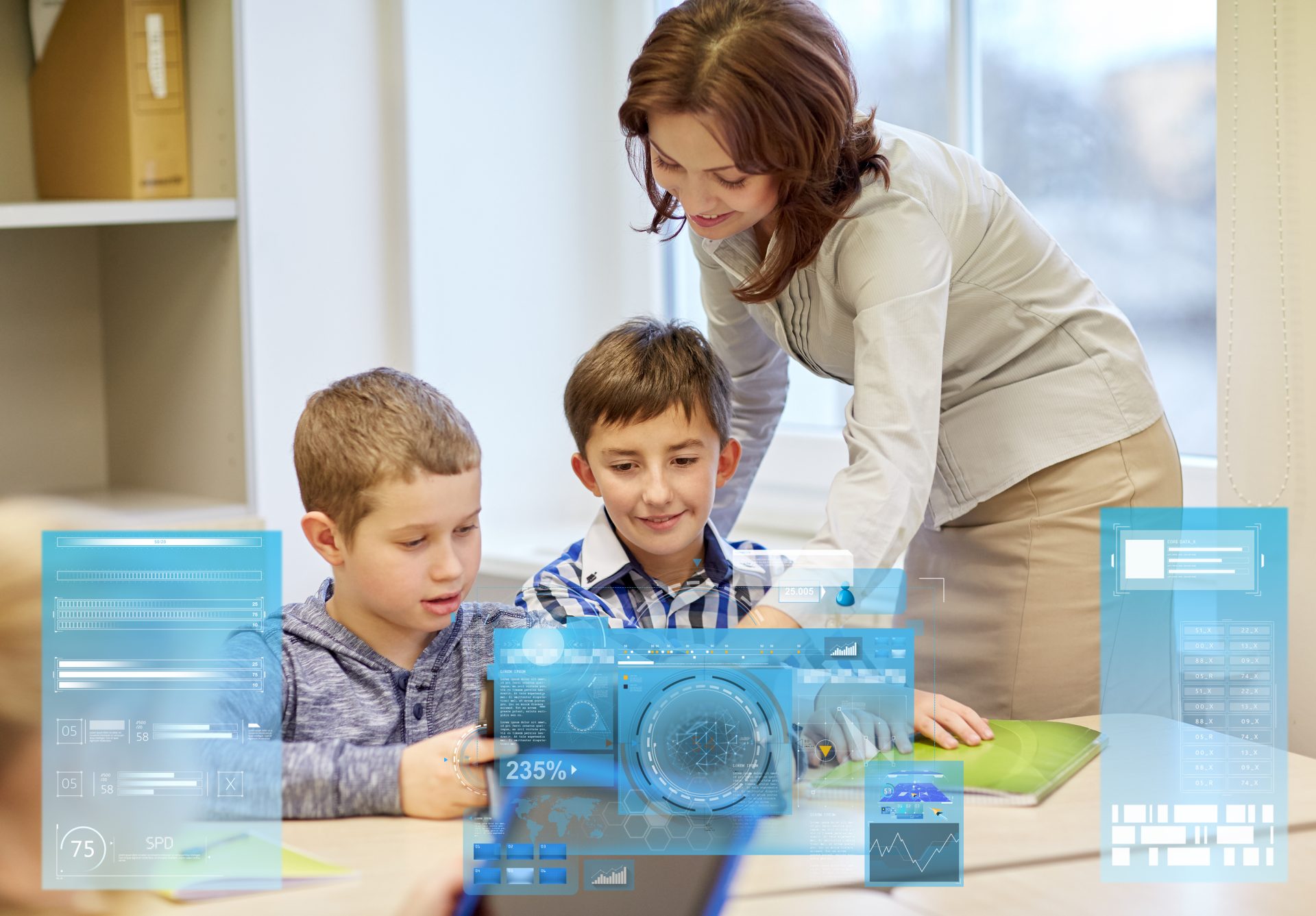Contents
- 1 Understanding Academic Performance in the Digital Age
- 2 Factors Influencing Academic Performance in Online Elementary School
- 3 The Role of Teachers in Online Elementary Education
- 4 The Role of Parents in Online Elementary Education
- 5 Strategies to Improve Academic Performance in Online Elementary School
- 6 The Pros and Cons of Online Elementary Education
- 7 Online Learning Tools and Resources for Elementary Students
- 8 Conclusion
Online elementary schools became more popular. Many parents and students choose these schools and work to succeed. Some students don’t perform well academically. We’ll explore what parents and students do to improve academic success.

Academic performance in online elementary school is how well students do in their studies. The studies include grades, test scores, and progress in core subjects. These core subjects are math, reading, and science. We’ll break down these points and show how to boost academic performance.
Understanding Academic Performance in the Digital Age
Academic performance in online elementary schools depends on digital tools, self-discipline, and support systems. We’ll explore how online education impacts academic performance in elementary school. We’ll highlight the factors parents consider and the strategies they use to boost their child’s academic success.
Factors Influencing Academic Performance in Online Elementary School
Academic performance in online elementary school depends on several key factors. We will cover four factors parents consider to help students succeed.
Student Engagement
Student engagement is crucial for success in online learning. Interactive lessons, videos, and educational games help students stay focused. A lack of interaction leads to disengagement and lower performance.
Parents and students use tools like Nearpod and Kahoot to enhance engagement through interactive learning activities.
Technology Access
Students need a computer or tablet, a stable internet connection, and access to educational platforms. Technical issues or lack of access hinder learning.
Parents check if students have the right devices. Parents buy Chromebooks or iPads as the best options for budget and quality.
Parents monitor internet speed using Speedtest by Ookla. Parents take measures if the speed is insufficient. These measures include upgrading their internet plan, switching to a more reliable provider, or using a wired connection. They limit other devices’ usage during study time to ensure better bandwidth for learning.
Time Management
Students need to manage their time well. Some students struggle without the structure of a regular school day. This struggle results in poor work and lower student’s performance.
Parents help students build time management skills to succeed. Tools like Google Calendar and My Study Life help students stay organized and keep track of assignments and deadlines.
Learning Environment
A quiet, organized workspace with minimal distractions helps students focus. No proper workspace leads to poor focus and lower performance.
Parents create a designated learning space with ergonomic furniture and proper lighting to support student’s concentration. Parents use the Occupational Safety and Health Administration (OSHA) ergonomic guidelines to set the best learning space. These guidelines recommend proper desk height, chair support, and lighting to create a productive environment.

The Role of Teachers in Online Elementary Education
“When the micro-computer came into vogue in schools, doomsday prophets predicted the demise of the public school teacher. Now, we have so much more technology in schools and student’s pockets, and we still have teachers. What then, will be the role of the teacher when each student can look up every answer on their wrist phone, or with their eyeglasses? My answer is that we will always need great teachers. The teacher’s role will be to motivate and inspire the students to want to learn, but for this to happen, the teacher must first provide a compelling answer to the oft-repeated question, “Why do I need to know this?”
Ben Johnson, Edutopia
Teachers are key to online elementary education success. Their duties are similar to those in traditional schools. Teachers work hard to help students get a good education. Here are six things teachers do to help students:
- Deliver the curriculum through digital platforms. Teachers adapt lessons to fit the online format. Teachers use a mix of live lessons, recorded videos, and interactive content to keep students engaged.
- Assess student progress regularly through quizzes, assignments, and projects. Teachers provide timely feedback to ensure students understand their strengths and areas for improvement.
- Use creative methods to keep students engaged. These methods include incorporating interactive elements, games, and group activities to maintain attention.
- Provide more individualized support than in traditional settings. Teachers conduct one-on-one virtual meetings or small group sessions to address specific student needs.
- Keep parents informed about their child’s progress, challenges, and achievements.
- Manage virtual classrooms effectively. Teachers use learning management systems (LMS) to organize lessons, track student progress, and distribute learning materials.
Legacy Online School has certified, skilled teachers from diverse cultural backgrounds. Our teachers fully support students. They track student’s progress and help when needed.
The Role of Parents in Online Elementary Education
Parents support their children’s success in online elementary education. Parents take on responsibilities beyond traditional schooling. Here are six things parents do to help students:
- Set up a dedicated learning space free from distractions. This space helps the child stay focused and organized during school hours.
- Manage their child’s daily schedule, ensuring they attend live classes and complete assignments on time.
- Monitor their child’s academic progress. This monitoring includes reviewing student’s assignments, helping with homework, and checking in with teachers.
- Encourage their children to stay engaged with lessons and maintain motivation. This includes setting goals, rewarding student’s progress, and offering praise for completing tasks.
- Ensure their child has the needed technology and knows how to use online learning tools. This includes setting up devices, managing internet connectivity, and troubleshooting technical issues.
- Stay in regular contact with teachers to get updates on their child’s progress and address any concerns.
Strategies to Improve Academic Performance in Online Elementary School
Parents use strategies to boost student performance even before online school starts. This helps avoid problems with low academic achievement. Here are six strategies for improving academic performance in online elementary school.

Set a Consistent Schedule
A regular daily routine helps students maintain focus and manage time effectively.
Parents set a structured schedule with study times, regular breaks, and consistent bedtime routines. Parents follow the U.S. Department of Health and Human Services’ advice on maintaining a consistent learning schedule.
Create a Distraction-Free Workspace
Having a quiet, comfortable space designed for learning improves student’s focus and productivity.
Parents set up a workspace with proper lighting, ergonomic furniture, and minimal distractions. They follow Centers for Disease Control and Prevention’s (CDC) ergonomics guidelines to create a proper space. Parents ensure students have school supplies and materials within reach. These materials include notebooks, pencils, pens, textbooks, and a computer or tablet for online learning.
Use Interactive Educational Tools
Educational tools offer interactive learning resources which enhance a student’s education.
Parents encourage students to use approved educational apps and platforms to reinforce their learning. Parents make sure these tools are part of the student’s daily routine to supplement classroom instruction.
Set Small, Achievable Learning Goals
Breaking down large tasks into smaller, manageable goals helps students stay motivated and focused.
Parents encourage students to set daily or weekly SMART (Specific, Measurable, Achievable, Relevant, Time-bound) goals. Parents teach students to use techniques like chunking tasks to keep track of these goals.
Monitor Screen Time
Limiting non-educational screen time is essential for keeping students focused on their schoolwork.
Parents track how much time students spend on screens outside of schoolwork and set limits to ensure they stay engaged with their education. Parents follow the American Academy of Child and Adolescent Psychiatry’s guidelines on appropriate screen time for children.
Communicate with Teachers Regularly
Open communication with teachers helps track student progress and address any concerns.
Parents maintain contact with teachers regularly through emails, parent-teacher meetings, or online portals. This helps ensure parents are informed of their child’s progress and any challenges.
The Pros and Cons of Online Elementary Education

Online elementary school has pros and cons. We’ll cover six advantages and six disadvantages to help parents decide if online elementary school is right for their child.
| PROS | CONS |
|---|---|
| Students learn at their own pace and manage their time independently | Less face-to-face interaction with peers affect social development |
| Online platforms offer personalized learning plans. These plans accommodate different learning styles | Students need discipline and time management skills to stay on track |
| Digital tools and educational apps provide a variety of learning materials | Students need a reliable internet and access to proper devices |
| Parents have more control over their child’s learning environment and schedule | Parents need to be more involved in daily academic tasks and monitoring progress |
| Learning from home reduces safety risks associated with physical schools | Home environments have more distractions than traditional classrooms |
| Students in remote areas access high-quality education without relocating | Students have fewer chances for physical activities or lab work |
Online Learning Tools and Resources for Elementary Students
Online learning in elementary school has challenges making it harder for students to succeed. We’ve put together eight tools to help parents and kids handle these issues.
Google Classroom
A platform for managing student’s assignments and communicating with teachers. Students access materials, submit work, and stay organized. Parents use this platform to monitor student’s progress.
Khan Academy
A free educational resource offering lessons in math, science, reading, and more. Students benefit from instructional videos, exercises, and personalized learning paths to boost their understanding.
Prodigy
A math game turning learning into an adventure. Students engage in challenges adapting to their level, helping them improve math skills in a fun way.
Epic!
An online library with thousands of books, audiobooks, and learning videos. Students read at their own pace, improving their online learning experience.
Nearpod
A tool for creating interactive lessons with quizzes and multimedia. Students stay engaged through real-time feedback, making learning more dynamic and interactive.
Scratch
A coding platform where kids learn to program by creating stories, games, and animations. Students develop creativity, problem-solving, and logical thinking skills.
IXL
A personalized learning tool for subjects like math and language arts. Students practice with tailored exercises. Parents use this tool to track student’s progress with real-time analytics.
Flipgrid
A social learning tool for recording and sharing short video responses. Students improve communication and collaboration skills by engaging in discussions with their peers.
Conclusion
We looked at academic performance in online elementary school and the challenges students face. We discussed strategies to improve student’s academic performance. We’ve shared six tools to help parents and students succeed in online learning.











